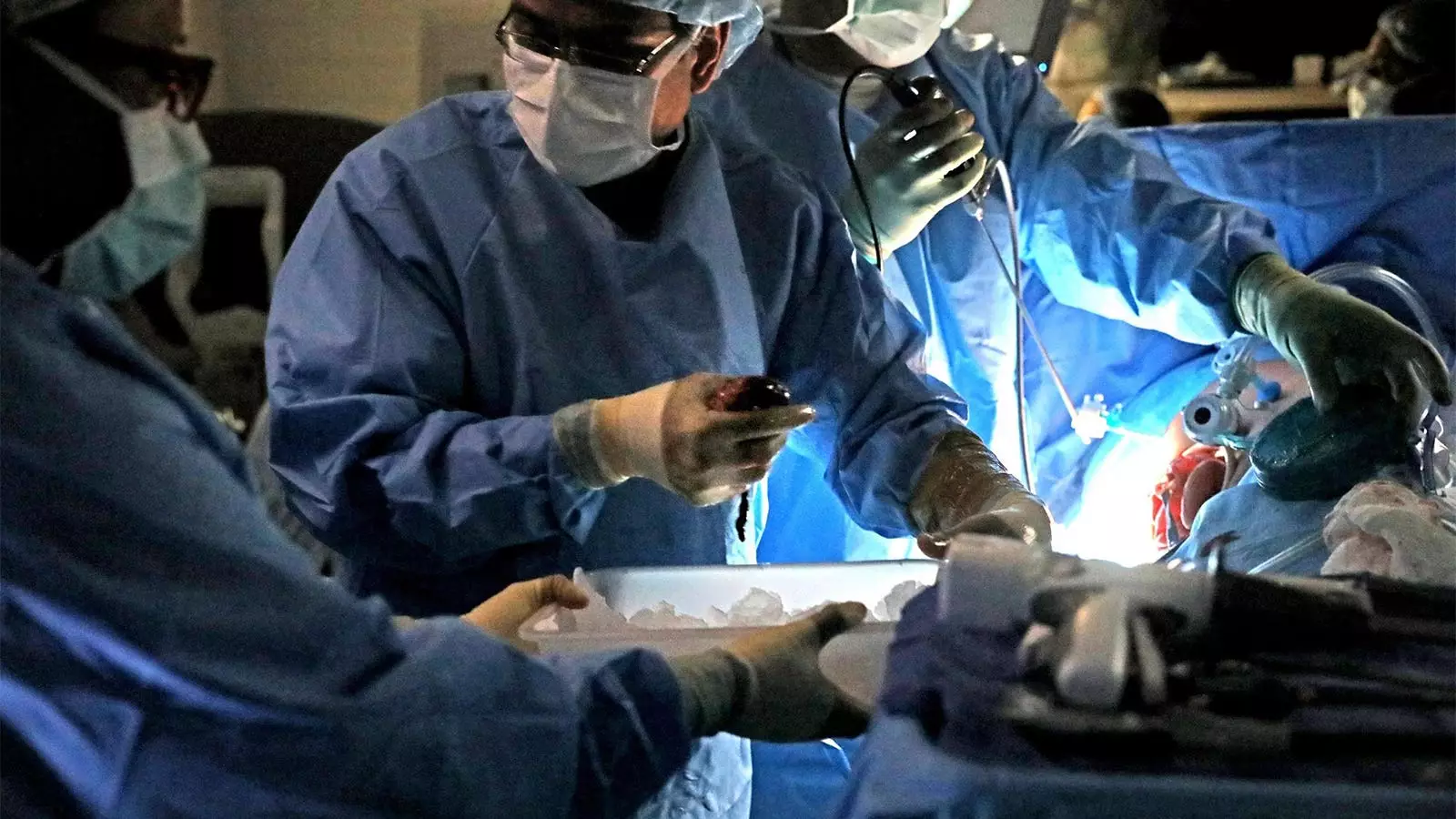When Simon reunited with his best friend Andre after months of work-related travel, he was struck by a profound sense of disbelief at Andre’s condition. The physical toll of kidney disease and the harsh realities of dialysis were starkly evident. Andre’s struggle with chronic illness was compounded by the agonizing wait for a kidney transplant; with over 100,000 people languishing on the national transplant waiting list, the necessity for organ donations has never been more critical. In a selfless act of goodwill, Simon offered to donate one of his kidneys to his ailing friend, only to discover the significant barriers that living donors face within the current healthcare landscape.
According to recent statistics, around 17 people die each day while waiting for an organ transplant, highlighting the scale of the crisis. While living organ donation—often taking the form of a kidney or a segment of the liver—presents a viable solution, it remains underutilized. In 2023, over 6,900 individuals stepped forward as living organ donors. These altruistic contributions can dramatically enhance the quality of life for recipients afflicted with end-stage organ disease. Nevertheless, despite these remarkable acts of generosity, societal and systemic barriers continue to impede the growth of living organ donations.
Living kidney and liver donors frequently encounter complications with their health and life insurance, such as elevated premiums and outright denial of coverage. Such economic adversities can deter potential donors, as many individuals rely on their jobs for sustenance, including those taking unpaid leave to facilitate the donation process. The implications of financial toxicity only serve to compound the already strenuous emotional journey of organ donation.
Understanding the Legislation Landscape
Although existing laws like the Affordable Care Act (ACA) and the Family and Medical Leave Act (FMLA) aim to mitigate some of the challenges faced by living organ donors, they are not universally effective. The ACA prohibits healthcare insurers from imposing elevated costs based on pre-existing conditions, while the FMLA allows for job-protected leave for medical reasons—including organ donation. However, gaps remain. Not every employer is obligated to comply with these regulations, and coverage is not guaranteed for all employees.
Some states have enacted stronger protections and incentives for prospective living donors, yet others lag behind in this critical area. Legislative proposals like the bipartisan Living Donor Protection Act, introduced in 2021, serve as a beacon of hope. This act aims to fortify the rights of living organ donors, ensuring that their health insurance is not compromised by their donor status and that they can receive the necessary time off without the fear of job loss. Additional measures, such as the Honor Our Living Donors (HOLD) Act, focus on redefining financial aid eligibility based solely on donor income instead of recipient income.
Moreover, the Living Organ Donor Tax Credit Act proposes offering a one-time refundable tax credit for living donors, addressing the financial burdens that may arise from the surgical procedure. However, despite the evident necessity of such reforms, these initiatives have seen little traction. The complex legislative landscape, compounded by increasing political polarization, makes progress difficult.
As illustrated by Simon’s experience, the journey of organ donation should not be fraught with financial anxieties and unnecessary difficulties. Advocating for policy reform is not just an abstract concept; it is an urgent call to action that must resonate in the halls of Congress. By ensuring that legislation that provides protections and incentives for living donors is prioritized, we can create a more compassionate system that encourages people to step forward and make a difference.
Encouraging living organ donors doesn’t just alleviate the burden on the transplant waiting list; it also fosters a culture of generosity and community. Every single organ donation has the potential to transform lives. The foremost goal should be to empower those wishing to donate, alleviating the fears surrounding financial instability and job security.
Let us rally behind the proposed legislation aimed at amplifying support for living organ donors. The fight for comprehensive reform can be the linchpin in changing the narrative around organ donation. Simon’s dedication to helping Andre embodies the spirit of camaraderie and altruism that should go hand in hand with organ donation. As a society, we must strive to ensure that no one is placed in the precarious situation that Simon found himself in. By fostering a supportive environment, we can advocate for more living organ donors and ultimately save lives.



Leave a Reply